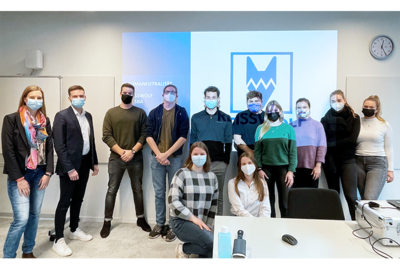REISSWOLF Germany is starting the new year with really good news. Namely with the topic "Innovation through research". Admittedly, it sounds a bit dull - but it is exactly the opposite and profitable in practice in more than one direction. This is an innovation management project together with the Hamburg School of Business Administration (HSBA).
REISSWOLF provides and accompanies research topics in order to check whether existing processes are still state of the art or whether there are more innovative options in the meantime. Or also to find out in which areas there is still great potential for development. Whatever the specific topic, the end result is added value for the students as well as for REISSWOLF. The students are shown practical, tailor-made approaches to solutions and in return have the chance to select relevant tasks, e.g. for project, bachelor or even master theses. Further cooperation with other universities and universities of applied sciences is possible at any time and also desired on the part of the company.
Currently, students at the HSBA have taken on the topic of sustainability in three project teams, specifically with the task "Ways to integrate CO2 neutrality into the REISSWOLF service portfolio".
An initial presentation of the results showed a systematic overview of possible measures for reducing the CO2 footprint, the preparation of a detailed climate balance sheet and certified compensation. The initially theoretical customer view was also considered and then tested for its practical relevance with selected existing customers: What do customers expect from a service provider like REISSWOLF, which scans data, archives it, offers digital solutions for companies so that they can work efficiently with their data, and ultimately securely destroys or deletes the data and reprocesses hardware? Can REISWOLF meet the increasing demand for environmentally friendly processes even better?
During the project, there were two consultation hours with experts from the company, in which the students were able to discuss initial ideas and approaches. However, this is not the end of the project, as further student teams will now develop concrete implementation options for REISSWOLF in their work based on these results. We are already looking forward to their input. And we are quite sure that we will never be short of research-relevant questions about secure data management!

